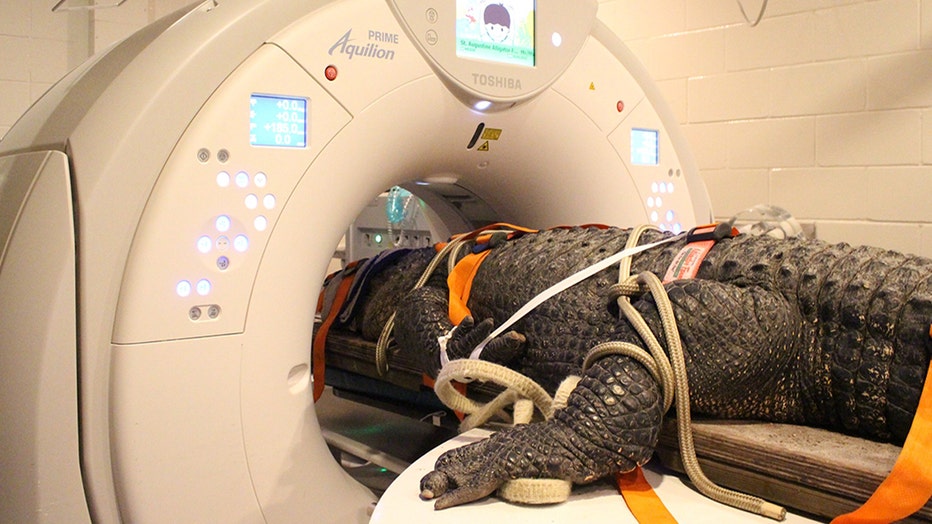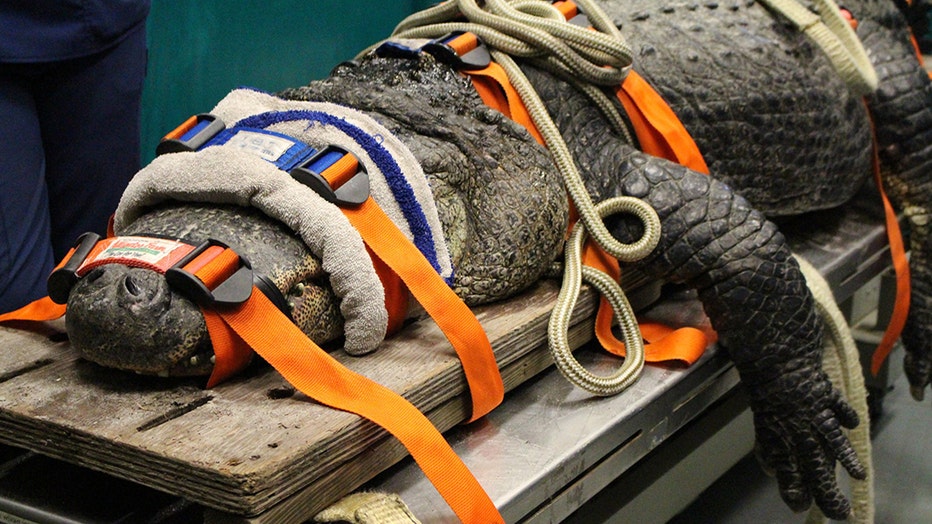376-pound alligator undergoes CT scan while treated by vets at University of Florida
376-pound gator gets a CT scan by UF vets
How do you treat a 376-pound alligator with an ear infection? Very carefully. For the folks at the University of Florida College of Veterinary Medicine, it's familiar territory. One of their more recent patients was "Brooke," a nearly 20-year resident of St. Augustine Alligator Farm Zoological Park. Brooke visited the college for a "thorough work-up," according to a social media post.
ORLANDO, Fla. - How do you treat a 376-pound alligator with an ear infection? Very carefully.
For the folks at the University of Florida College of Veterinary Medicine, it's familiar territory.
One of their more recent patients was "Brooke," a nearly 20-year resident of St. Augustine Alligator Farm Zoological Park. Brooke visited the college for a "thorough work-up," according to a social media post.

Courtesy: UF College of Veterinary Medicine

Courtesy: UF College of Veterinary Medicine
The park's reptile curator said Brooke had recently been exhibiting symptoms such as intermittent head-rolling in the lagoon where he lives. So, they strapped Brooke to a board, secured its mouth, and placed a towel over its eyes before transporting it to Gainesville.
VIDEO: 6-foot alligator breaks through fence to build nest in Cocoa Beach man's backyard
UF zoological medicine resident Dr. Bridget Walker drew some of Brooke's blood for analysis and ordered radiographs and a computerized tomography (CT) scan during the reptile's stay.

Courtesy: UF College of Veterinary Medicine
"Our zoological medicine service team determined that Brooke had an ear infection," the college wrote on Facebook. "We hope he'll be on his way to recovery soon!"
Brooke came to the St. Augustine Alligator Farm Zoological Park from the Brookfield Zoo in Chicago, the park said.
RELATED: Massive 38-year-old alligator treated at the University of Florida is recovering
Brooke is not the largest alligator treated by the UF College of Veterinary Medicine. In 2020, the college took in a real beast named "Bob," also a resident of the St. Augustine Alligator Farm Zoological Park. Bob appeared to be limping, and his right rear leg had been hurting, so they determined the 660-pound reptile needed a medical exam. You can read more about how staff moved that colossal reptile and see images here.
UF treating 660-pound alligator
A 660 pound alligator is undergoing treatment at the University of Florida for a bone infection.

